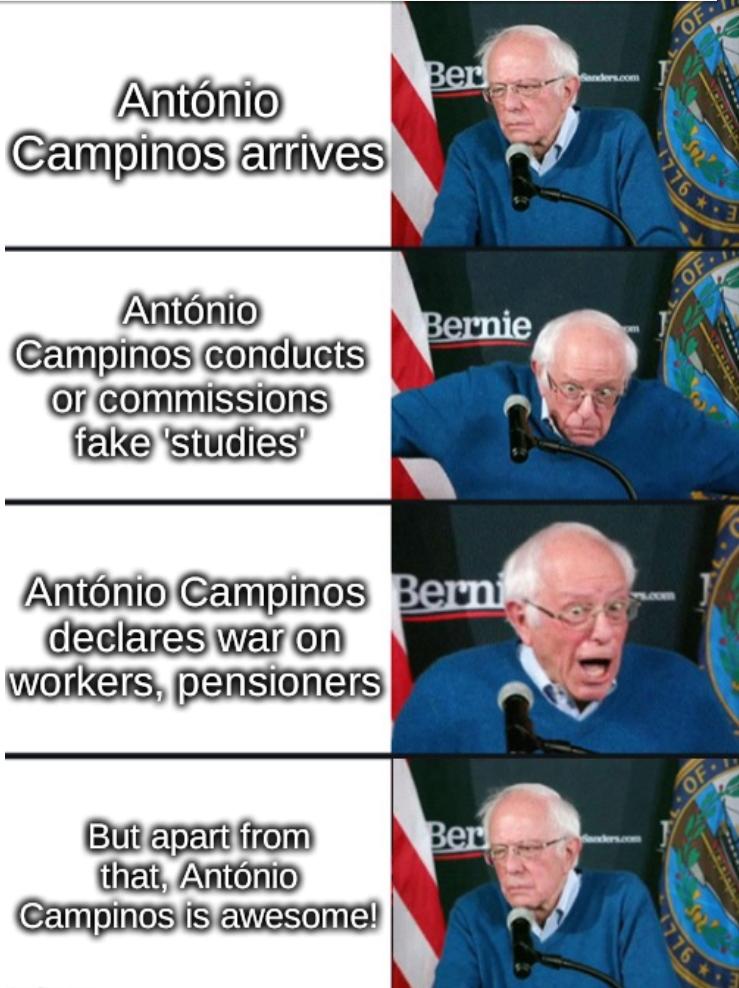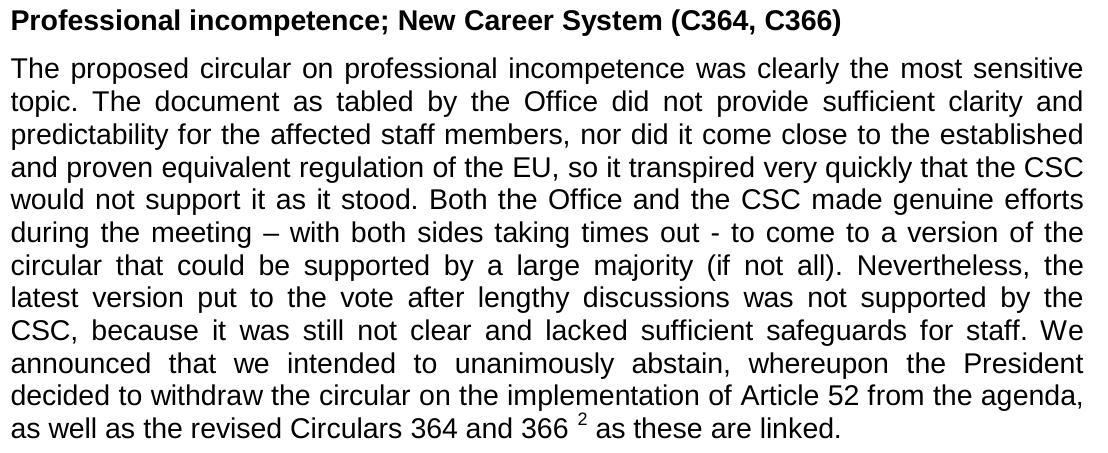

[PDF] was issued just months after Campinos landed (having been parachuted from CEIPI and EUIPO) at the Office. There was still some tinge of hope in it:

[PDF] was produced and here's the conclusion:

Report of the 3rd GCC 2019 on 16 May
[Continuing policies on lack of meaningful staff involvement]
Dear colleagues,
As reported already last time a red thread through GCC meetings in general remains the lack of meaningful staff involvement to secure transparency and trust. The documents presented concerned:
I. Periodical review of the Service Regulations – (GCC/DOC 07/2019) incl: I. b. Suspending the possibility for voluntary contributions to the Salary Savings Plan (SSP) II. Reimbursement of bus transportation costs of international schools (GCC/DOC 08/2019) - withdrawn III. Publication of the monthly staff changes list in intranet – (GCC/DOC 09/2019) - withdrawn IV. Healthcare figures – (GCC/DOC 10/2019)
Social Dialogue Due to lack of meetings with the President in 2019 we use any opportunity to discuss matters at stake with the President, who himself says that he is the only and one address for social dialogue. We consequently seized the opportunity at the start of the 16 May 2019 GCC meeting to propose a few points. The President responded briefly: ● Consultation on the strategic plan is over... ● The means of the consultation process are as imposed by the Administration... ● The Administration decides on the necessary data to be provided...
Surprising last GCC in 2018
Five documents were on the agenda of this last GCC meeting in 2018 (on 18 December) for consultation:
€· one on a revised Guide to cover under the healthcare insurance scheme (Circular No. 368) €· one on professional incompetence (implementation rules to Article 52 ServRegs) €· two were relating to the career system (revised Circulars Nos. 366 and 364), and €· one to the resources granted to the Staff Committee (revised Circular No. 356).
An improved and consensual version of the revised Guide to cover was well prepared by an additional round of discussion in a Working Group. The Circular was quickly and unanimously approved by all GCC members. The proposed circular on professional incompetence was clearly the most sensitive topic. This proposal was not as mature as it could have been following proper consultation. Although the Office and the CSC made genuine efforts during the GCC, the proposal and the linked Circulars 366 and 364 were finally withdrawn by the President. The revision of Circular 356 providing increased time resources to the CSC corrects in part the imposed time restrictions with the last reform of Circular 356 as of July 2017.
 Based on the above (full reading possible; we're publishing the PDFs today), a few months into his term Campinos still gave some hope of a turnaround; but less than a year later (perhaps half a year down the road) the real agenda became clearer to see, along with the fake 'study' whose sole goal was to crush staff.
Based on the above (full reading possible; we're publishing the PDFs today), a few months into his term Campinos still gave some hope of a turnaround; but less than a year later (perhaps half a year down the road) the real agenda became clearer to see, along with the fake 'study' whose sole goal was to crush staff.
As we said many times before, the assault on the rights of EPO staff represent a threat to all international organisations and workers across Europe (if not the whole world). This situation presents a pattern of attack wherein the principal objective is to pass wealth from workers to oligarchs based on "job creation" or "trickle-down" mythologies; in the EPO's case, they pretend they can recruit good examiners on the cheap and they lie about the financial situation of the Office. ⬆